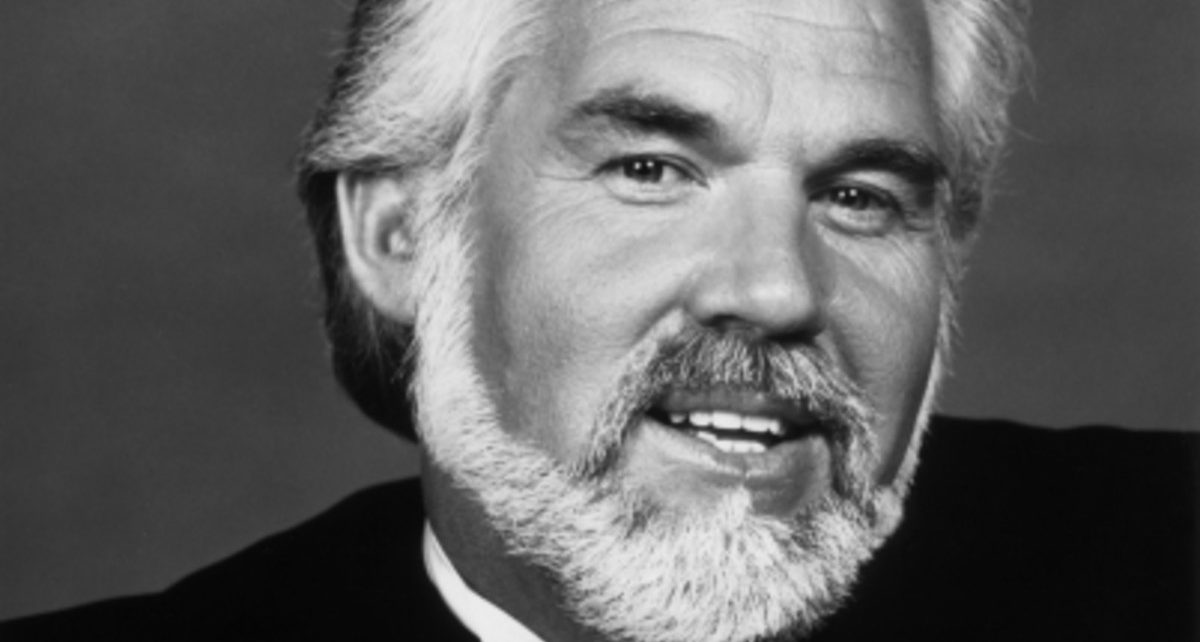Country music made Godfather hat, jeans, leather jacket and cowboy boots the dress code of Kikuyu musicians
By Undercover Reporter
This legendary American country musician greatly influenced the spread of One-Man-Guitar and its Mugithi craze Kenya.
Kenny Rogers, the silver haired, full-bearded sandpapered crooner, died of natural causes at his home in Georgia, USA, at 81. He will be buried in a private ceremony due to that not so small matter of corona virus.
Kenny Rogers, who sang through five marriages, three Grammy Awards and 120 million albums in sales, is famous here for such gold standard songs as The Gambler, Coward of the County and Lucille.
Those three are often the opening songs during most Mugithi Night session in clubs mostly haunted by the Kikuyu of Central Kenya- where country music blends well with the community’s pop and traditional folk songs: Both are spare of instrumentation, rely heavily on vocals and dexterity with the guitar.
Most Mugithi musicians like Mike Rua, Mike Murimi and the late Salim Jr became popular via opening their performances with popular cover songs by mostly by Kenny Rogers before getting dirty and naughty with their corrupted versions of popular Kikuyu music, including Lingala and gospel.
Indeed, among the Kikuyu, country music is a beloved genre and not necessarily because Rogers said his songs “say what every man wants to say and that every woman wants to hear”.
One reason for their penchant for country music is that the Kikuyu are genetically deficient dancers. Actually, mugithi, is Kikuyu for train and revelers in a Mugithi hold each other’s back or butt, while snaking around the club ‘follow the leader’ style.’ That is not dancing but collective ineptitude for individual gyration.
Country music thus appeals more to the ears than the feet, and surveyed closely, country and Mugithi feature songs themed on the vagaries of life and love in songs like When two fools Collide and Don’t fall in love with a Dreamer by Kenny Rogers who besides music also dabbled in acting, photography and semi-professional tennis.
Godfather hat, jeans, leather jacket and cowboy boots are signature dress codes of many Kikuyu musicians
Indeed, the simplicity of country music also makes Mugithi appealing as Kikuyu audiences are attracted to the simple, but not simplistic arrangements of beats and lyrics couched in one guitar, one vocalist and sometimes a drummer.
Country music and Kikuyu songs tell stories using strident lyrics peppered with idioms, proverbs and worldly wise sayings belted with some degree of grace, intelligence, and ageless intent. Country music also has easy, sing along refrains. The Gambler, the most famous song in the over 60 years Rogers was in music, hasthe memorable lines;
You’ve got to
know when to hold ’em
Know when to fold ’em
Know when to walk away
And know when to run
For the Kikuyu, a business and dough minded lot, the following lines also get the club coming alive when singing along to;
You never count your money
When you’re
sittin’ at the table
There’ll be time enough for countin’
When the dealin’s done!
Besides Kenny Rogers, other notable American country musicians in Kenya include Dolly Parton with whom Rogers had engaging duets in songs like, We got Tonight and Islands in the Stream. There is also the late Don Williams- whose trademark Godfather hat, jeans, leather jacket and cowboy boots are signature dress codes of many Kikuyu musicians. Like the late Joseph Kamaru and John Demathew, Timona Mburu, Peter Kigia and Musaimo wa Njeri who identified with the cowboy dressing spearheaded by artistes from Nashville, Tennessee in Texas-home of cowboys-and country music.
How did the Kikuyu get affinity for country music than other communities in Kenya?
Well, Sudanese-American writer Isma’il Kushkush, explored the issue in a 2015 article for the New York Times where he writes that though country music emerged in the USA in the 1920s, it only came to Kenya in the 1940s.
See, Kikuyu men were conscripted into the Kings Africa Rifles as ‘Carrier Corps’ fighting alongside the British in Burma during World War II and War breaks included dancing to the Foxtrot and country music, introducing the Kenyans to those genres.
Among items Kikuyu ‘Carrier Corps’ brought to Kenya at the end of World War II in 1945, were accordions, concertinas and guitars. With these instruments, they turned the British Foxtrot into the traditional Kikuyu Mwomboko dance besides replacing the wandidi with the guitar for their secular songs fashioned after country music. They also came with knowledge of guns which was useful in making homemade ones during the Mau Mau war of independence that lasted seven years to 1959-African continent’s only peasant revolt to date.
While working in Settler farms, the Kikuyu listened to country music through the radio and kinanda of the mzungu
The Kikuyu also had experienced early contacts with British missionaries and colonial administrators more than other communities due to the geographical proximity of Central Kenya to major towns where the British were based. While working in Settler farms, the Kikuyu listened to country music through the radio and kinanda of the mzungu.
Kushkush thus notes that country music in Kenya was more pronounced in the central highlands where its fans were older folks, those bending their 50s “but a younger generation who grew up listening to their parents’ music also tune in.”
The British left after Kenya attained her independence in 1963, and the Kikuyu carried on with a taste for country music through social learning as did their children through nurture.
In fact, Kikuyus in rural Central Kenya deemed the genre as ‘music for the rich’ and with independence, these rural folk immigrated to cities with a taste for ‘music of the rich’ a trend that never waned. It was buttressed by Kikuyu musicians borrowing heavily from the use of spare instrumentation, structure and overriding vocals of country songs of Kenny Rogers, Don Williams, Charley Pride, Allan Jackson and Skeeter Davis.
John Obongo Jr, host of Sundowner on KBC English Service told Kushkush that the appeal of country music also stems from its straightforward lyrics and slower tempos and that its stories of love, family, chivalry, the land, faith, roads and working-class life resonate with many people.
Both country music and Mugithi break complex issues of life into simple, deep lyrics befitting a community known for hustling through life. With women fond of leaving homes, farmlands and children, a Kikuyu easily connects with the tribulations of the dude in Lucille and whose refrain are a haunting reality:
“You
picked a fine time to leave me, Lucille
With four hungry children and a crop in the field
I’ve had some bad times, lived through some sad times
But this time your hurting won’t heal
You picked a fine time to leave me, Lucille”
But how did the One-Man-guitar craze begin?
It appears to have gained currency at the height of economic hardships occasioned by Structural Adjustment Programs (SAPs) in a decade to the early 1990s when the ‘Beach Club’ at Uhuru Park introduced Sam Muthee, a Kenyan who had returned from the UK. Muthee sang popular cover versions of Kenny Rogers and Don Williams and shortly, Kikuyu-centric club owners who could not afford DJs, dance floors and neon lights preferred these solo guitarists.
The craze went main stream when Sam Muthee took a backseat and the likes of Mike Rua took centre stage with a combination of country and corrupted Kikuyu secular music mostly of Joseph Kamaru and the late John Ndichu at the turn of the Millennium.
The rest is a rich musical history of which Kenny Rogers, who is credited with popularizing country music’s crossover to pop, was part. His death saw Country music programmes in Kenya dedicate whole shows to the fourth of eight children who was born in Houston Texas on August 21, 1938.

